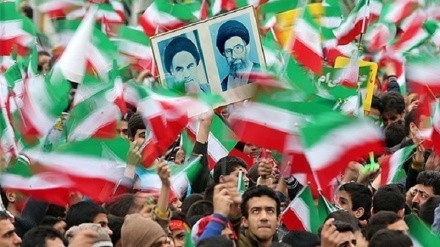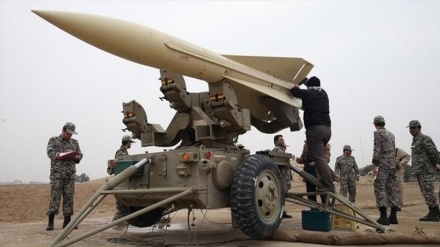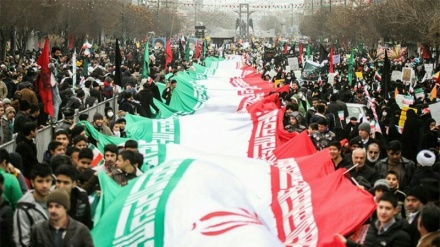Iran 40 years after victory of the Islamic Revolution (13)
The principle of popular rule can be examined from two aspects: the theoretic aspect and the sociological aspect. The first aspect refers to the definition of the issue while the latter addresses its nature and way of formation in history. In view of this, the Islamic Republic has been founded on two bases of republicanism and Islam. In other words, the form of the government is republic while its content is Islamic.
The Constitution of the Islamic Republic of Iran is a clear example of popular rule and this is pointed out in article 4. Religious popular rule is the source of the political thought in Islam and Iran's constitution has paid special attention to it. Article 2 of the Constitution stresses the role of people in religious popular rule as per the principles of Islam. According to this article people enter the scene of election in every affair. They elect the president, the lawmakers, and representatives of the Assembly of Experts that leads to indirect election of the leader. Article 6 of the Constitution says on the popular essence of the system, "In the Islamic Republic of Iran, the affairs of the country should be administered according to the public votes, through election; election of the president, members of parliament, members of councils and the like; or through referendum in other cases which are determined in this law."
Religious popular rule is based on principles which contain fundamental criteria and standards of political development. The first principle for religious popular rule is the satisfaction of the people. Hence, the establishment should pursue the affairs of people sincerely and thereby show a beautiful picture of the system serving the people.
The Leader of the Islamic Revolution, Ayatollah Khamenei, expressly says, "In the religious popular system, handling people's affairs, maintaining their welfare and comfort and solving their problems is an important principle."
This is so important that the Leader considers two aspects for religious popular rule, namely analytical and foundational. He emphasizes that serving the people is the manifestation of the analytical aspect of religious popular rule and deems it as an important factor for bolstering the nation-government bond. The officials assume very heavy duties before people. They shouldn't indulge in propaganda for garnering votes and then forget their promises and accountability before the people and the divine court. In view of Islam, a popular system is a mechanism which, besides relying on public votes, firmly keeps its promises and doesn't forget its commitments. Such a policy will yield people's satisfaction and God's satisfaction thereof. The combination of these two satisfactions shapes the unique essence of religious popular rule. Religious popular rule is indeed a translation of Islamic principles and values.
Ayatollah Khamenei, explicating Imam Khomeini's standpoint on people's role, says, "The claim of popularism in all systems- even the despotic ones- exists; but it is important as where the status, position, right and role of the people is taken into account. Imam Khomeini, in the real sense of the word, believed in the element of 'people' in the Islamic system and paid close and real attention to the people in several arenas: the first arena is the arena of emphasis on people's votes. The reliance of the system on people's votes is one of the fields in which people play a role. People's presence and believing in them should be manifested here. In our Constitution, our teachings and the guidelines of the Imam, it has always been stressed that the system is really nothing without the support, vote and will of the people. It is with reliance on the people's vote that some official takes power. The system should move through reliance on the people's vote. The presidential election, Assembly of Experts election, parliamentary election, and other elections symbolize the presence of the people's vote, will and demand. In fact, the election and presence of the people in the arena of electing the president, members of parliament or other elections that they do, is their right and an obligation on their shoulder."
RM/ME


